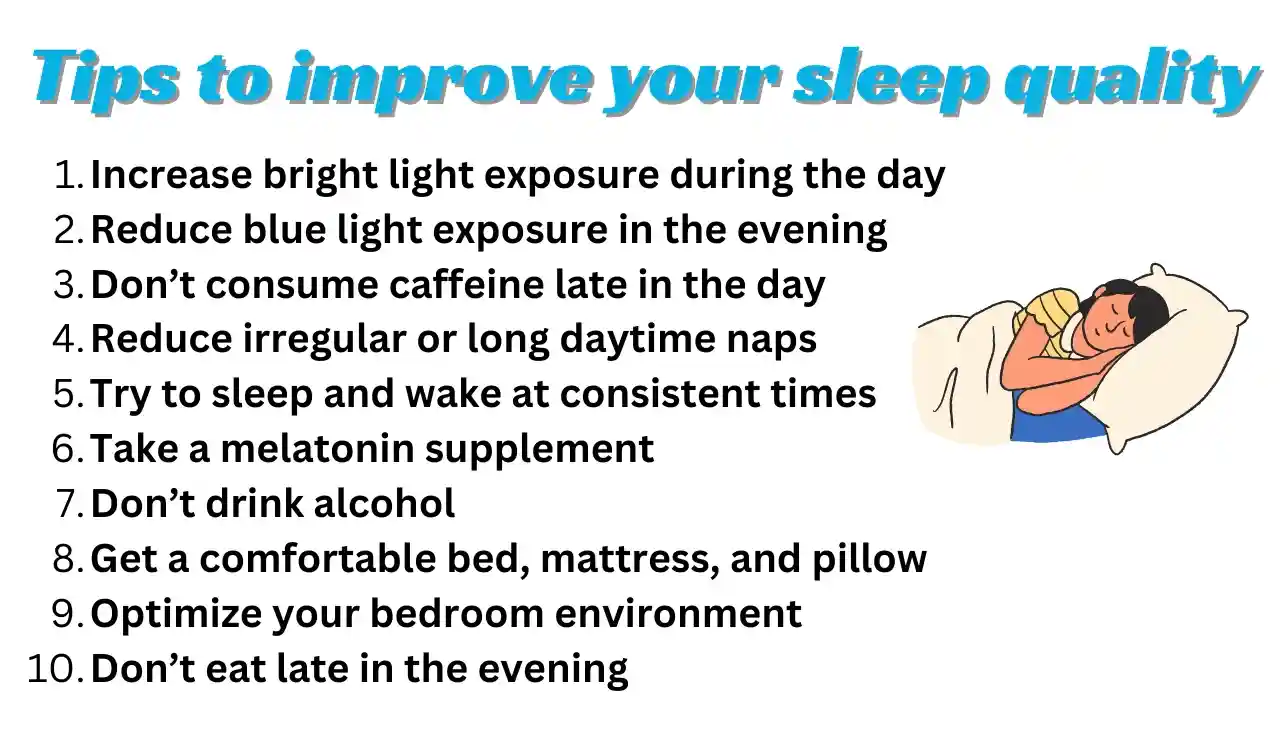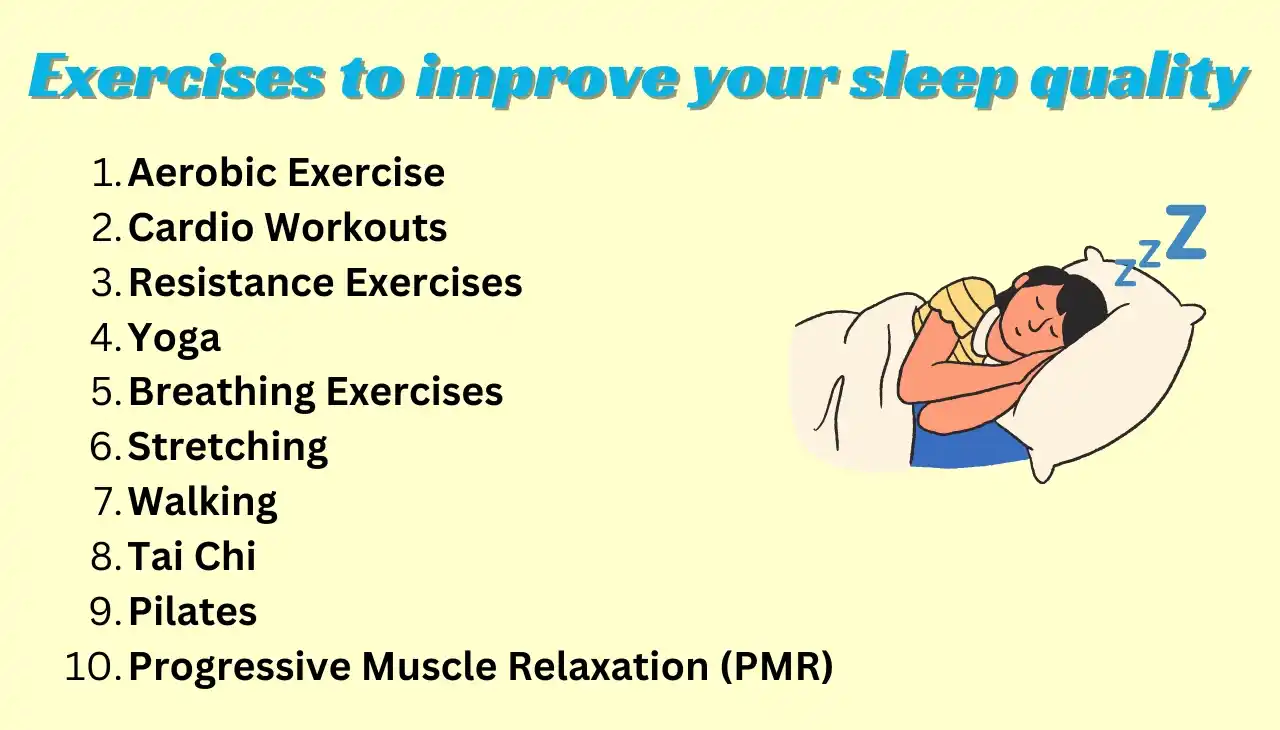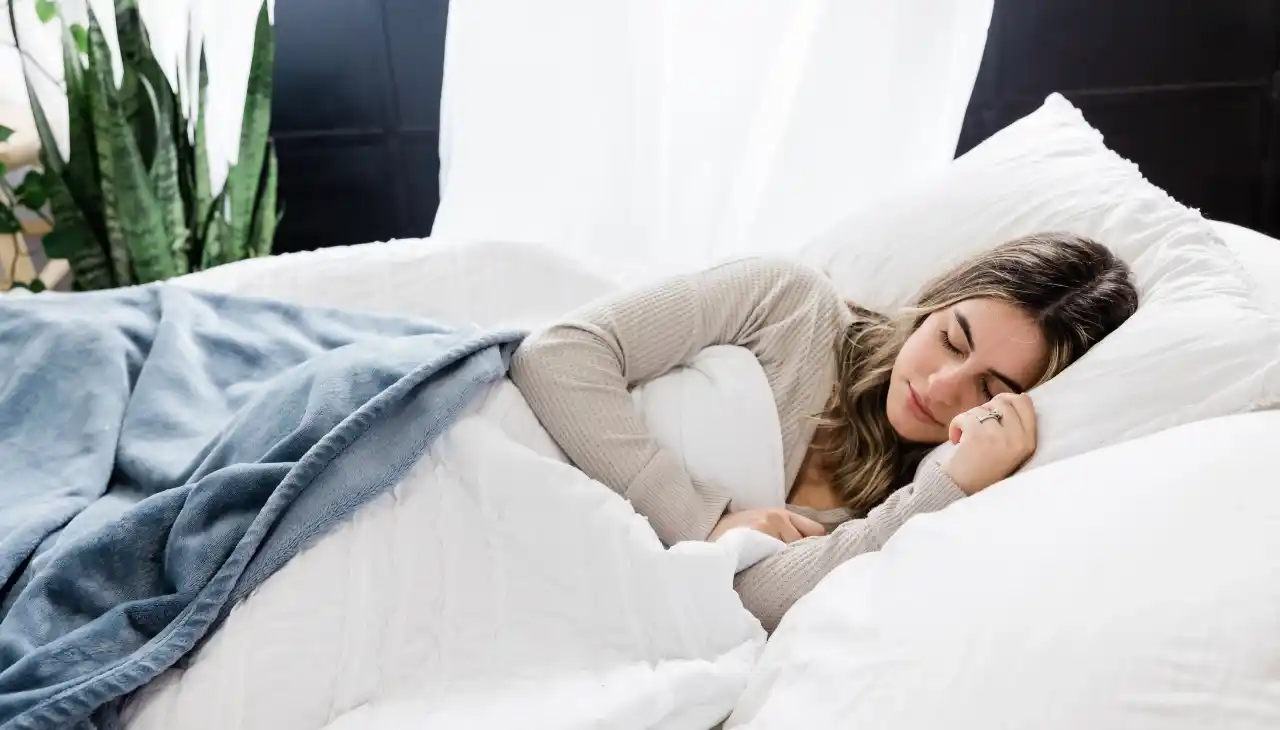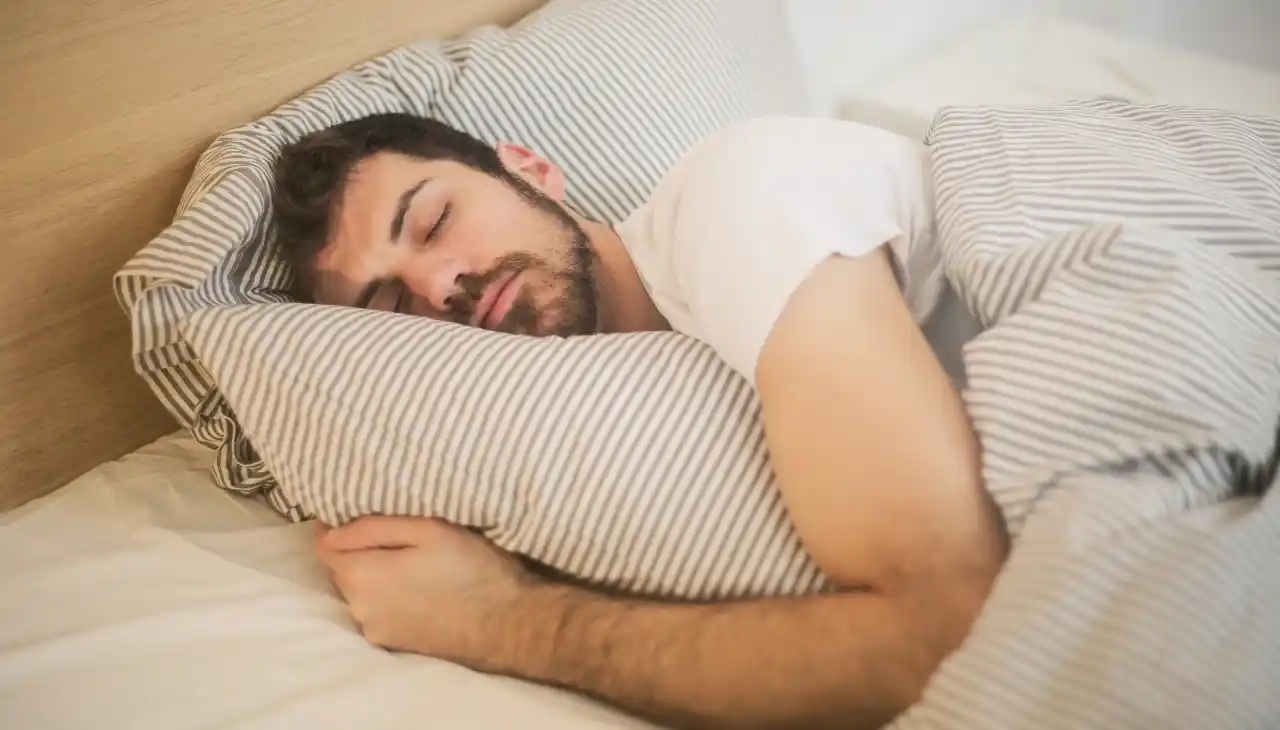Introduction
Do you often find yourself tossing and turning at night, only to wake up feeling groggy and unrested? You’re not alone. In our fast-paced world, quality sleep can seem like an elusive dream. But fear not! We’re about to embark on a journey to transform your nights and revolutionize your days and improve your sleep quality.
Why Sleep Quality Matters
- Sleep quality impacts mood and productivity.
- The sleep quality conundrum arises when sleep quality isn’t just quantity, but quality.
- Common sleep issues include difficulty falling asleep, counting sheep until the wee hours, and multiple waking up feeling like barely slept.
- The guide aims to provide strategies to enhance sleep quality, aiming for rejuvenating slumbers and better days.

Tips to sleep better at night
Improving your sleep quality is critical to overall health and well-being. Here are 15 evidence-based recommendations to help you sleep better every night:
- Increase Bright Light Exposure During the Day: Spend time in natural or strong light during the day. This helps balance your circadian clock, resulting in more energy throughout the day and greater sleep quality at night.
- Reduce Blue Light Exposure in the Evening: Electronic gadgets (such as cellphones and laptops) emit blue light, which can interrupt your sleep by lowering melatonin levels. Consider using blue light-blocking eyewear and avoiding devices for at least 2 hours before bedtime.
- Avoid Caffeine Late in the Day: Caffeine might disrupt your sleep. Avoid caffeinated beverages at least 8 hours before bedtime, and caffeine supplements should be avoided within 13 hours before sleep.
- Limit Irregular or Long Daytime Naps: Short naps can be rejuvenating, but inconsistent or long daytime naps might impair nocturnal sleep quality. Aim for consistent nap times and prevent late-afternoon naps.
- Stick to a Consistent Sleep Schedule: Going to bed and getting up at the same time every day helps to regulate your internal clock. Consistency improves sleep quality.
- Consider Melatonin Supplements: Melatonin is a hormone that governs the sleep-wake cycle. Melatonin pills may help you fall asleep more easily.
- Explore Other Supplements: Some supplements, such as magnesium and valerian root, may help you relax and sleep better. Before taking any new supplements, consult with a healthcare practitioner.
- Avoid Alcohol Before Bed: Alcohol may make you feel tired at first, but it can disturb sleep patterns and lower overall sleep quality.
Remember that individual reactions may differ, so investigate what works best for you. Sweet dreams.
Tips sleep fast in 5 minutes
If you want to fall asleep quickly, you can try these techniques:
- The Military Method (within 10 seconds):
- Briefly tighten and relax your facial muscles.
- Let your tongue relax.
- Drop your shoulders and allow your arms to dangle loosely.
- Breathe normally while relaxing your chest.
- Relax your thighs and lower legs.
- Clear your mind and visualize a relaxing scene (like floating in a boat or lying in a hammock).
- Get ready to drift off to sleep in just 10 seconds.
- 4-7-8 Breathing Method (within 2 minutes):
- Close your mouth and breathe in through your nose for 4 seconds.
- Hold your breath for 7 seconds.
- Exhale through your mouth for 8 seconds.
- Let’s do this for a total of four breaths.
- Other Tips:
- Stick to a consistent sleep schedule.
- Practice controlled breathing and progressive muscle relaxation.
- Visualize positive imagery.
- Upgrade your bedding.
- Avoid electronics before bedtime.
- Consider eating carbs at night.
Remember that individual reactions may vary, so figure out what works best for you. Sweet dreams!.

Diet for better sleep
Your food has a big impact on maintaining appropriate sleep patterns. The following meals may help you sleep better:
- Almonds: These nuts include vitamins B and magnesium, which might help you sleep better. Almonds also contain melatonin, a hormone that controls your biological clock.
- Turkey: Turkey is high in protein and contains the amino acid tryptophan, which may help with sleep quality. Tryptophan boosts melatonin synthesis and might cause sleepiness.
- Chamomile Tea: Chamomile tea, which is known for its flavones, contains special qualities that help you sleep better. Flavones decrease inflammation and may aid in relaxation before bedtime.
- Kiwi: Kiwi fruit has been linked to improved sleep owing to its serotonin levels and antioxidant characteristics.
- Tart Cherry Juice: Cherries, especially tart types, are a natural source of melatonin, which may help with relaxation and sleep.
- Fatty Fish: Oily fish such as salmon, mackerel, and trout provide vital omega-3 fatty acids, which may improve sleep.
- Walnuts: These nuts contain melatonin and other sleep-promoting elements.
- Passionflower: Passionflower is known for its relaxing qualities and may aid enhance sleep quality.
- White Rice: High-glycemic-index carbohydrates, such as white rice, might help you relax and sleep better.
Remember to avoid coffee, alcohol, and big meals close to bedtime for better sleep quality. Sweet dreams.
The 10 3 2 1 0 rule for better sleeping
The 10-3-2-1-0 sleep rule is a simple way to increase the quantity and quality of your sleep. This is how it works.
- 10 hours before bedtime: Avoid caffeine. Caffeine might take up to an hour to take action and can have long-lasting effects, potentially interrupting your sleep.
- 3 hours before bedtime: Avoid eating or drinking alcohol. Consuming food or drink close to bedtime might impair digestion and sleep.
- 2 hours before bedtime: Stop working. Increased screen time keeps the brain awake and makes it difficult to relax.
- 1 hour before bedtime: Reduce your screen time. Screens produce blue light, which can decrease melatonin synthesis and impair your ability to fall asleep.
- 0 times hitting the snooze button in the morning: Aim to avoid pushing the snooze button too many times. Consistent waking times assist regulate your internal clock.
Remember that individual answers may differ, so modify the rule to meet your needs. Sweet dreams.

Tips for a good night’s sleep and waking up refreshed.
To increase your sleep quality and wake up feeling refreshed, explore the following suggestions:
- Invest in a Better Mattress and Bedding:
- Choose a supportive mattress and pillow to ensure your comfort and avoid pains.
- Choose comfy linens and blankets that keep the room at a reasonable temperature overnight.
- Block Out Light:
- To keep light out of your sleeping space, use blackout curtains or a sleep mask.
- To increase melatonin generation, avoid bright light before bedtime.
- Minimize Noise:
- Reduce noise to make the setting more conducive to sleep.
- Consider using a fan, a white noise generator, earplugs, or headphones.
- Set the Thermostat to 65-68°F:
- Aim for a cooler room temperature to avoid distractions.
- Get at Least Seven Hours of Sleep:
- Prioritize sleep by scheduling at least seven hours each night.
- Allow extra time before bed to wind down and prepare for sleep.
- Set a Consistent Wake-Up Time:
- To regulate your body’s internal clock, stick to the same wake-up hour every day, including weekends.
- Practice Sleep Hygiene:
- Establish a bedtime routine and avoid caffeine and alcohol close to bedtime.
- Create a relaxing setting to improve sleep quality.
- Exercise Regularly:
- Physical exercise during the day can help enhance sleep quality.
- Exercise earlier in the day for optimal results.
- Let in Natural Light:
- Open the shades or turn on lights in the morning to reset your internal clock.
- Exposure to natural light during the day can positively impact sleep.
- Eat a Balanced Breakfast:
- Opt for complex carbohydrates and limit sugar intake.
- Pay attention to how your body handles glucose after eating.
Remember, individual responses may vary, so find what works best for you. Sweet dreams!.
Tips to sleep better with anxiety
Managing anxiety at night can significantly improve your sleep quality. Here are some practical techniques for improved sleep:
- Control Your Breathing: Practice relaxing breathwork. Slow, deep breathing induces a state of relaxation and reduces anxiety.
- Write Down Your Worries: Jot down any anxious thoughts before bedtime. This can help you clear your thoughts and avoid ruminating.
- Maintain a Nightly Schedule: Consistency matters. To adjust your body’s internal clock, sleep and wake up at the same time every day.
- Try to Focus Your Mental Energy: Redirect your thoughts away from anxiety. Visualization or mindfulness techniques can be helpful.
- Create a Comfortable Environment: Make your bedroom suitable for sleeping. Consider illumination, noise, and comfort.
Remember, individual responses may vary, so find what works best for you. Sweet dreams!.

Tips to sleep through the night without waking up
To sleep through the night without waking up, consider these helpful tips:
- Set a Fixed Bedtime: Establishing a consistent bedtime can significantly improve your sleep quality.
- Exercise Regularly: Physical activity not only benefits your health but also enhances sleep quality.
- Avoid Long Naps: While short naps can be refreshing, lengthy daytime naps may disrupt night time sleep.
- Create a Good Sleeping Atmosphere:
- Keep your bedroom dark, quiet, and comfortable.
- Invest in a supportive mattress and pillows.
- Limit Caffeine Before Bed: Avoid caffeine in the evening to prevent sleep disturbances.
- Consider Sleep Supplements: Consult a healthcare professional about melatonin or other sleep aids.
- Seek Guidance from a Sleep Therapist: If insomnia persists, professional advice can be beneficial.
Remember, individual responses may vary, so find what works best for you. Sweet dreams!.
Remedies to sleep well at night
If you’re looking for remedies to improve your sleep quality, here are some effective strategies:
- Mindfulness Meditation: Sit quietly and breathe slowly and steadily. Examine your breath, body, thoughts, and experiences. Meditation can help you relax, concentrate, and sleep better.
- Mantra Repetition: Repeating a positive affirmation or mantra might help you relax. Choose a short, relaxing remark and repeat it to yourself or aloud. This approach reduces anxiety and improves sleep.
- Maintain a Nightly Schedule: Consistency is important. Go to bed at the same time every night, giving an hour to rest, wash, and unwind.
- Focus Your Mental Energy: Redirect your mind away from anxiousness. Visualization and mindfulness practices can be useful.
- Create a Comfortable Sleep Environment:
- Make your bedroom conducive to rest by adjusting lighting, noise, and comfort factors.
- Avoid screens (TVs, phones, tablets) before bed to relax your mind.
Remember, individual responses may vary, so find what works best for you. Sweet dreams!.

How to sleep when you can’t
When you find yourself unable to fall asleep, it can be quite frustrating. Here are some effective strategies to help you drift off more easily:
- Box Breathing Method: Try this relaxing breathing technique. Inhale gently through your nose for 4 counts, hold for 4 counts, exhale through your mouth for 4 counts, then wait another 4 counts before repeating. Slowing your breathing helps to control your heart rate and prepare your body for sleep.
- Imagine a Relaxing Scene: Close your eyes and imagine a quiet area you’ve been, using all of your senses. Imagine yourself there, noticing every detail. Guided visualization recordings might also be useful.
- Acupressure: Firmly press the “Shen Men” point on your wrist (just below your palm, on the side of your pinky finger) for many minutes. When you’re at peace, let go.
- Mindfulness Meditation: Concentrate on your bodily senses—blankets against your skin, chilly air on your face, or the soft hum of a fan. Stay focused and clear your mind.
Remember, individual responses may vary, so find what works best for you. Sweet dreams!.
Improve your sleep quality
Understanding Sleep Quality and Its Trifecta
Understanding Sleep Quality
- Sleep quality is not just about the duration of sleep but also the feeling upon waking and the body’s response during sleep.
- It’s about feeling refreshed, not just unconscious for a few hours.
The Sleep Quality Trifecta
- Sleep hygiene: Create perfect conditions for sleep, including a consistent sleep schedule, a relaxing bedtime routine, a cool, dark, and quiet bedroom, and avoiding screens before bedtime.
- Melatonin: The sleep hormone, boosting natural melatonin production through natural light, dimming lights in the evening, eating melatonin-rich foods, and considering melatonin supplements.
- Circadian rhythm: The 24-hour clock in the brain, influenced by light and darkness, determining sleep and wake times.
- To align with this rhythm, stick to a consistent sleep schedule, get morning sunlight, avoid bright lights in the evening, and eat meals at consistent times.
Healthy Sleep Habits: A Guide to Dreamland
- The Power of a Bedtime Routine: A consistent bedtime routine signals to the body that it’s time to wind down. Examples include:
- Warm bath or shower
- Gentle yoga or stretching
- Deep breathing or meditation
- Writing in a gratitude journal
- Immerse yourself in the soothing melodies of calming music or the tranquil symphony of nature’s sounds.
- Exercise: Regular exercise can improve sleep quality, but timing is key. Aim for at least 30 minutes of moderate exercise daily and finish at least 3 hours before bedtime.
- Caffeine and Nicotine: The Sleep Stealers: Cut off caffeine at least 6 hours before bedtime. Be aware of hidden caffeine sources and consider quitting or avoiding nicotine close to bedtime.

Designing Your Sleep Sanctuary
- Create a cool, dark, and quiet bedroom environment.
- Maintain a temperature between 60-67°F (15-19°C).
- To prevent light, use blackout curtains or eye masks.
- Invest in a white noise machine or earplugs for noisy areas.
- Remove clutter for a calm atmosphere.
Choosing the Right Bedding
- Invest in a supportive mattress that suits your sleep style.
- Choose pillows that align your neck with your spine.
- Opt for breathable, natural fabrics for sheets and pajamas.
Tackling Common Sleep Disruptors
- The Alcohol Myth: Limit alcohol intake, have a last drink at least 3 hours before bedtime, and stay hydrated.
- Dealing with Nighttime Interruptions: Use earplugs or white noise machines, encourage partner snoring, and try sleep training for parents.
- When Sleep Disorders Strike: Poor sleep quality can indicate sleep disorders like insomnia, sleep apnea, restless leg syndrome, and narcolepsy. Seek professional help if suspected.
Sleep Cavalry: When to Seek Expert Help
- Consistent difficulty falling or staying asleep.
- Daytime weariness persists even after a full night’s sleep.
- Partner’s observation of breathing stoppage during sleep.
- Nighttime discomfort in legs.
- Seeking help is crucial for health and well-being.
Conclusion
Congratulations! You’ve taken the first step towards better sleep quality. Remember, improving your sleep is a journey, not a destination. Be patient with yourself and recognize your small victories along the way.
Imagine waking up rejuvenated, invigorated, and ready to face the day. It’s not just a dream – it can be your reality. So why wait? Start implementing these strategies tonight. Get ready to thank your future, refreshed self.
Sweet dreams, and here’s to waking up on the right side of the bed!
FAQ:
I've heard that everyone requires eight hours of sleep. Is that true?
Not exactly. While 8 hours is often cited as the ideal amount, sleep needs can vary from person to person. Some people function well for 7 hours, while others might need 9. The key is to focus on how you feel when you wake up. If you're consistently waking up refreshed and energized, you're likely getting the right amount of sleep for your body.
Can naps make up for poor nighttime sleep?
While naps can provide a short-term boost in alertness and performance, they're not a long-term substitute for good nighttime sleep. In fact, long or late-afternoon naps can interfere with your nighttime sleep. If you nap, try to keep it short (20-30 minutes) and early in the afternoon.
Is it true that you can't catch up on lost sleep?
It's a bit more complicated than that. While you can't fully make up for chronic sleep debt, you can recover from the occasional late night. If you've had a few nights of poor sleep, you might sleep longer on subsequent nights as your body tries to recover. However, consistently relying on "catch-up sleep" isn't a healthy long-term strategy.
I often find myself wide awake in the middle of the night, struggling to fall back asleep. What should I do?
If you wake up and can't fall back asleep within about 20 minutes, it's best to get out of bed. Go to another room and do a calming activity like reading or listening to soft music. Avoid screens, as the blue light can make it harder to fall back asleep. Only go back to bed when you feel tired again. This helps reinforce the association between your bed and sleep.
Can certain foods improve my sleep quality?
Yes, some foods can potentially improve your sleep quality. Foods rich in tryptophan (like turkey, eggs, and cheese), magnesium (like nuts and seeds), and melatonin (like cherries and bananas) may help promote better sleep. However, it's important to avoid heavy meals close to bedtime, as digestion can interfere with sleep. A light snack combining complex carbs and protein, like whole grain crackers with cheese, about an hour before bed might help if you're hungry.




